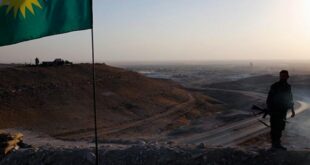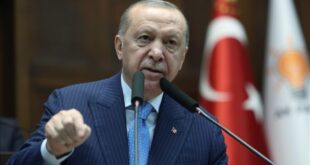 U.S. Secretary of State Condoleezza Rice and Defense Secretary Robert Gates will ask Saudi Arabia on Wednesday to help more with U.S. efforts in Iraq and discuss a big arms deal for Washington’s Gulf ally.The two cabinet secretaries are on a rare joint trip to the Middle East, which U.S. officials say is meant to reassure allies that the United States remains committed to the region despite its problems in Iraq and the growing strength of Iran.
U.S. Secretary of State Condoleezza Rice and Defense Secretary Robert Gates will ask Saudi Arabia on Wednesday to help more with U.S. efforts in Iraq and discuss a big arms deal for Washington’s Gulf ally.The two cabinet secretaries are on a rare joint trip to the Middle East, which U.S. officials say is meant to reassure allies that the United States remains committed to the region despite its problems in Iraq and the growing strength of Iran.
After talks with Egyptian President Hosni Mubarak and ministers from Gulf states in the Egyptian resort of Sharm el-Sheikh on Tuesday, Gates said U.S. allies were worried public opinion would force America to pull out of Iraq soon.
“There clearly is concern on the part of the Egyptians, and I think that it probably represents concerns elsewhere in the region, that the United States will somehow withdraw precipitously from Iraq or in some way that is destabilizing to the entire region,” he said.
Gates and Rice, who arrived in Jeddah on Tuesday evening for dinner with King Abdullah and the Saudi defense and foreign ministers, said they told their partners that stability in the Middle East was a top U.S. priority.
They have presented the forthcoming Saudi arms sales deal, and new military aid packages for Israel and Egypt, as a sign of that commitment.
The 10-year package for Saudi Arabia is expected to be worth at least $20 billion and is likely to be expanded to include deals with other Gulf states, a senior U.S. defense official traveling with Gates told reporters.
Gates and Rice have insisted the package is not intended as an incentive to get Saudi Arabia to cooperate more with U.S. efforts to stabilize Iraq.
U.S. officials have expressed frustration with Riyadh’s Iraq policies. Like many Sunni Arab states, the Saudi leadership is highly suspicious of Iraq’s Shi’ite-led government, believing it to be biased against Sunnis and too close politically to Shi’ite-dominated Iran.
PUBLIC SUPPORT
Washington would like to see clear messages of support for Prime Minister Nuri al-Maliki’s government from Saudi Arabia, partly by exerting its influence with Sunni tribes in Iraq, and more efforts to stop foreign fighters crossing into the country.
But a Western diplomat in the kingdom said there was little expectation that Saudi Arabia would respond to calls to deal more positively with Maliki’s government because Riyadh has concluded it is hopelessly sectarian.
He said the looming departure of the Accordance Front, a key Sunni group, from Maliki’s cabinet would further discourage Saudi leadership from taking any steps.
In March, King Abdullah branded the U.S. involvement in Iraq an “illegal foreign occupation,” a comment U.S. officials have tried to brush aside.
Washington and Riyadh have also not seen eye to eye of late on how to approach the Israeli-Palestinian conflict.
In February, Saudi Arabia angered the United States by brokering a now defunct power-sharing deal between the Palestinian president, whom Washington views as a moderate, and Islamist militant group Hamas, seen by the United States as a terrorist organization.
On Wednesday, after a joint news conference, Rice and Gates will go their separate ways, with the top U.S. diplomat going to Jerusalem and Ramallah for meetings with Israeli and Palestinian leaders and the defense chief elsewhere in the region.
 Eurasia Press & News
Eurasia Press & News



